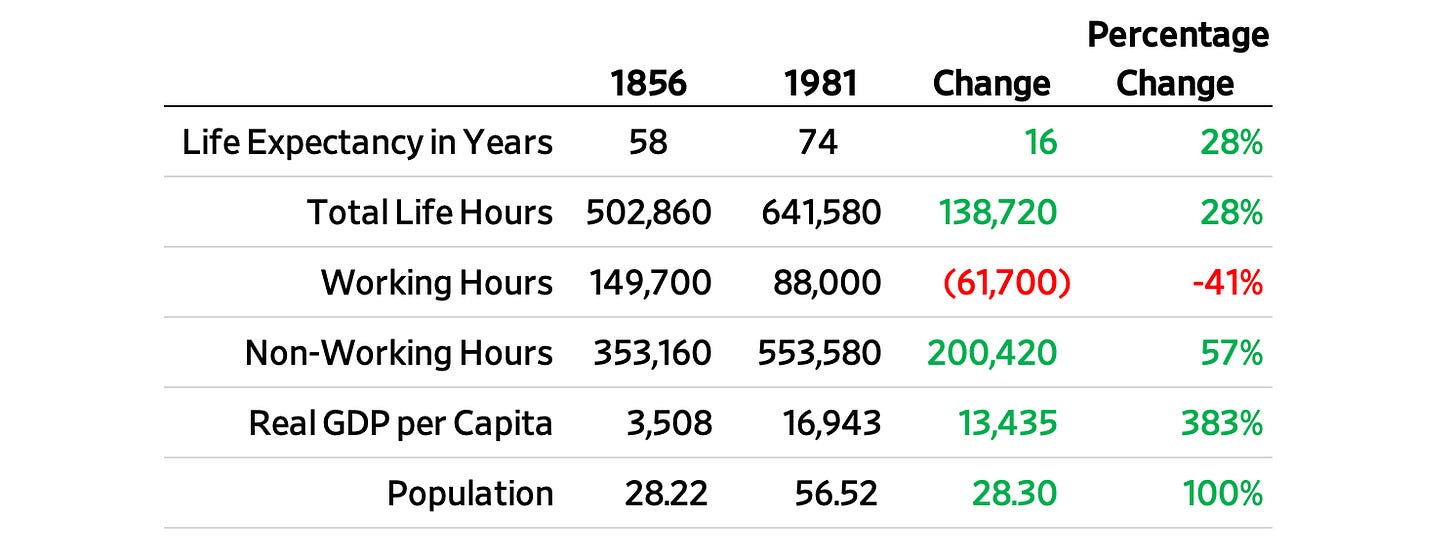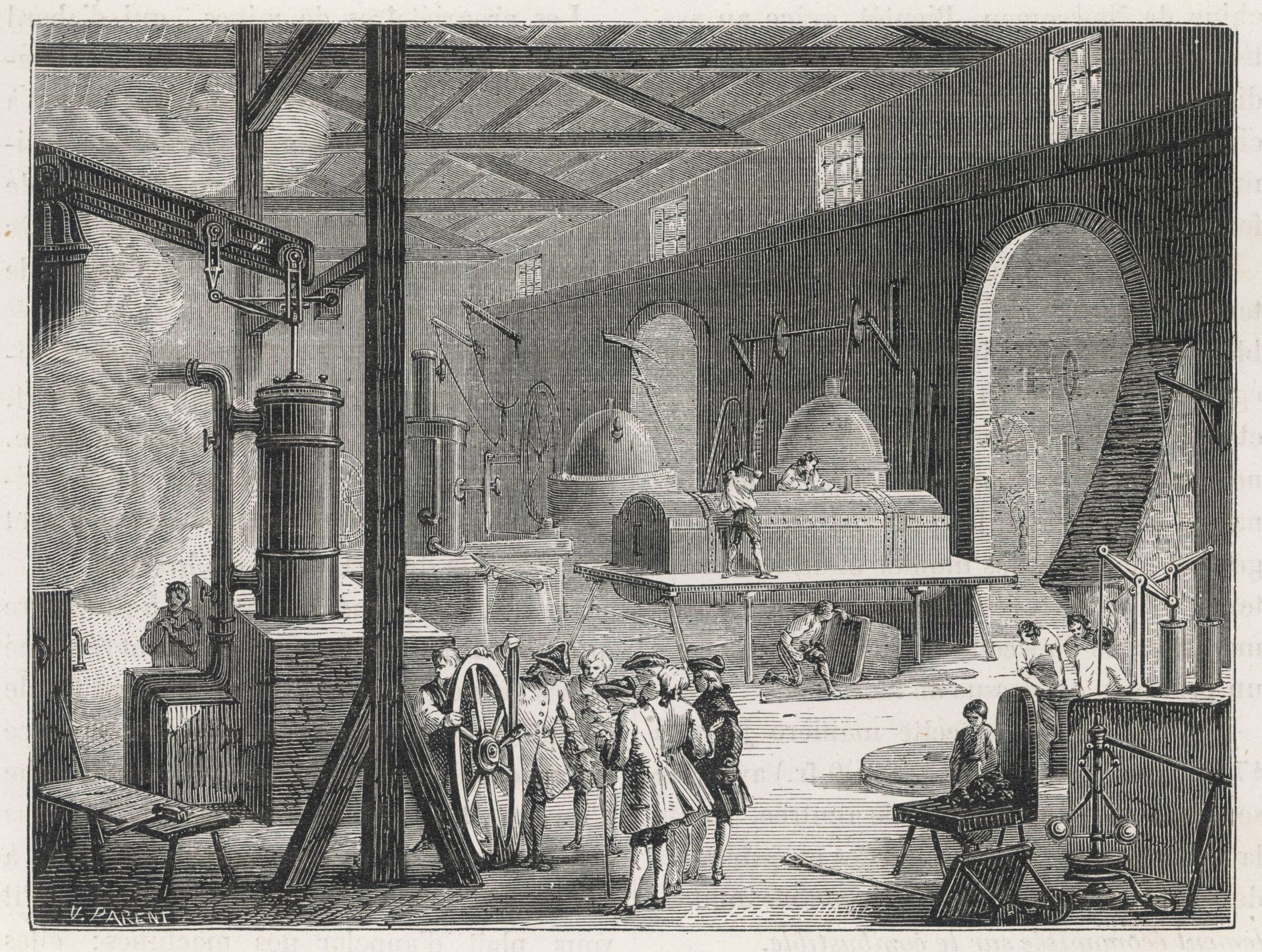Wealth & Poverty Review Work Less, Earn More, Live Longer
From 1856 to 1981 men in the U.K. got 174,720 more hours to enjoy life while incomes rose 383 percent. Originally published at SubstackIn 1856 men in the U.K. had a life expectancy of around 58 years, or 502,860 life hours. According to a study by Professors Jesse Ausubel and Arnulf Grübler, over the course of their lives, these men typically spent around 30 percent of their time, or 149,700 hours working. By 1981 life expectancy had increased by 16 years to 74, or 641,580 hours. During this same period, however, the number of hours worked had fallen by 41 percent to 88,000. They worked 61,700 fewer hours while increasing their life hours by 138,720, or 28 percent. Innovations in health care and productivity combined to these double benefits that increased non-working hours by 200,420 or 57 percent. During this same period, real GDP per capita increased by 383 percent from 3,508 pounds to 16,943 pounds. In addition, population doubled from 28.22 million to 56.52 million. More people help us work less, earn more, and live longer. Nice.


